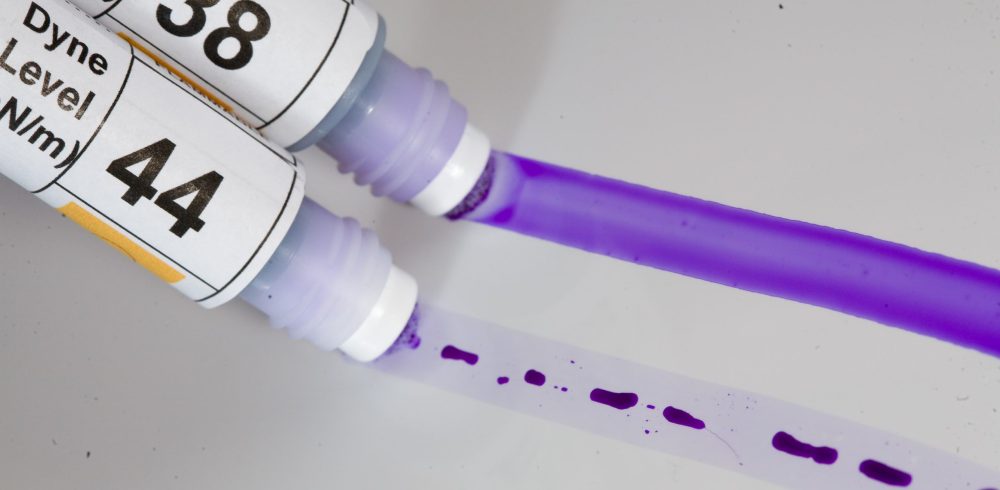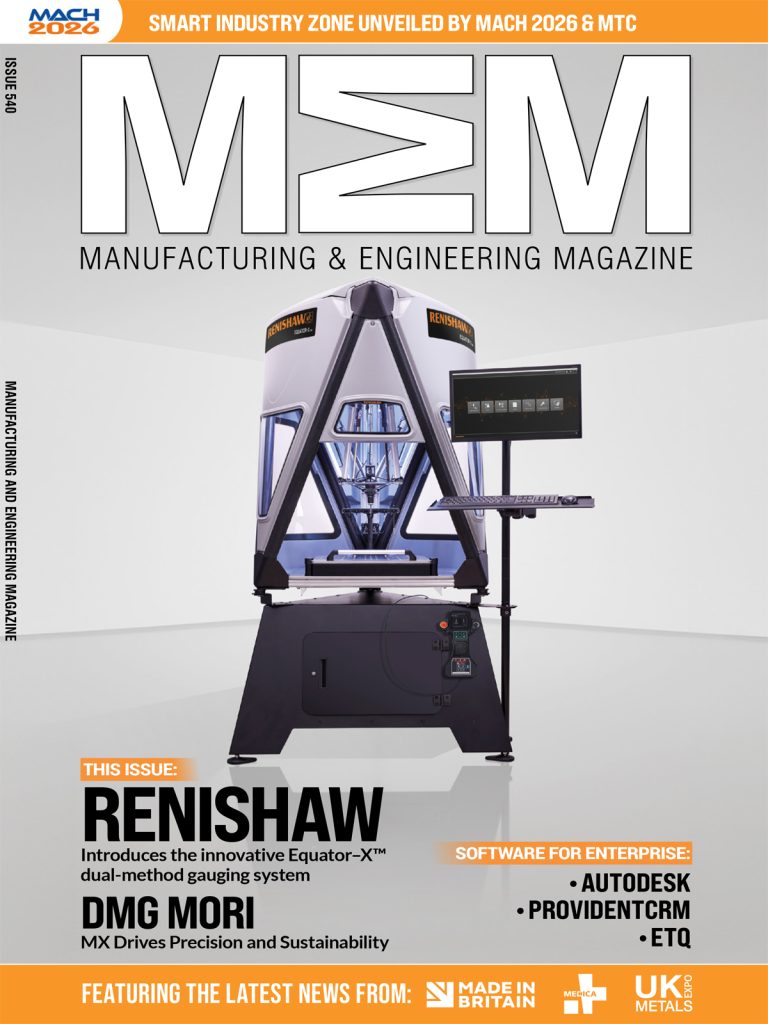To help industrial and research users measure surface energy with a quick, easy, and low-cost methodology, Dyne Testing, an Intertronics company, supplies Dyne Pens and Inks. Dyne Pens and Inks are a convenient way of measuring a polymer’s surface energy or wettability, and of identifying filmic contamination of metals. This can benefit engineers and researchers in packaging and converting, automotive, aerospace, medical device manufacturing, and battery technology applications.
The Dyne Pen test is a simple method of determining the surface energy of most polymer-based materials in line with ISO 8296 and ASTM D2578-84. It is used to help understand the surface energy and wetting characteristics of polymers, and their suitability for bonding, coating, painting, or printing. Test results will inform the need for surface preparation, such as cleaning, or plasma, corona, or flame surface treatment.
Dyne Pens are available in a range of values from 30 to 72 “Dynes”. To perform the test, the user selects a pen, and draws a line on their substrate. The test ink will either form a continuous film on the surface or draw back into droplets. If the test ink stays as a film for 3 seconds or more, then the substrate’s minimum surface energy (measured in mJ/m², mN/m, or dyne/cm) is lower than the test ink. The surface energy of the substrate can be determined within a tight tolerance by applying a range of increasing or decreasing values of test inks and observing the wetting. Users can also purchase inks in bottles, which can be spread using a brush, spreader or drawdown bar to perform the test.
There are two types of Dyne Pen, the ISO Type, which is based on ISO 8296:2003 ink specifications, and a Non-Toxic range, an ethanol-based alternative. The ISO Type is available both in pen format and as bottles of ink, which are purple in colour. The non-toxic range is available as ink only and is yellow in colour. Test inks also have application in assessing contamination on metal surfaces.
“For bonding/printing to be a success, the liquid’s surface tension must be less than the substrate’s surface energy, so that wetting occurs” said Ben Swanson, Chief Commercial Officer at Intertronics. “While most metals wet fine, many plastics do not. Metals, however, can become contaminated during handling, and this can impact their ability to be processed.
“There are many ways to improve a plastic’s surface energy, including cleaning, treatment with plasma/corona or by using a primer,” continued Swanson. “Plasma treatment can increase the substrate’s surface energy and clean it simultaneously, making it useful to treat both metals and plastics.”
“Originally designed for use in packaging applications to test the surface energy of polyethylene film before printing, Dyne Pens have been used successfully in many applications,” said Alison Fox, Brand Manager at Dyne Testing. “Before and after surface treatment, the Dyne Pen test can be extremely helpful to understand a substrate’s surface tension. Customers who want to ensure a successful printing or bonding process can order Dyne Pens from us for next day delivery.”
For environments where a move advanced test is needed, Dyne Testing supplies instrumentation for contact angle measurement and optical tensiometers.
For customers looking to use surface measurement to improve their understanding of wetting and adhesion, Intertronics and Dyne Testing can support with developing a reliable, repeatable, and safe process. For more information on Dyne Pens, visit https://dynepens.co.uk.
Manufacturing & Engineering Magazine | The Home of Manufacturing Industry News















